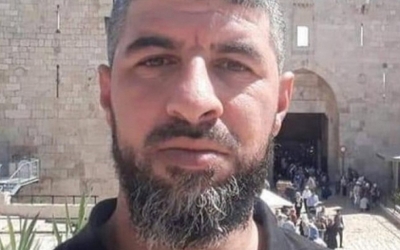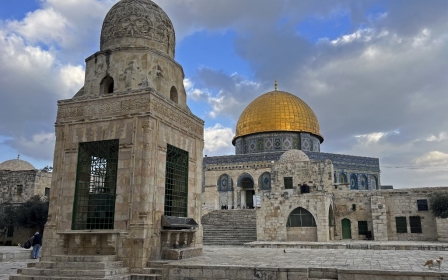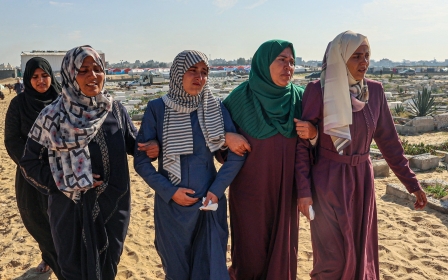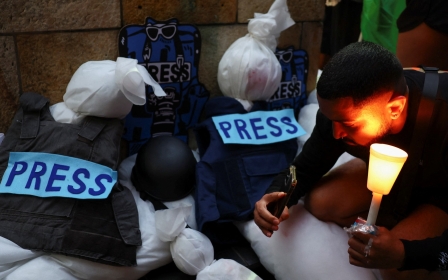Israel: Ben-Gvir calls for restrictions on Palestinians after Jerusalem attack
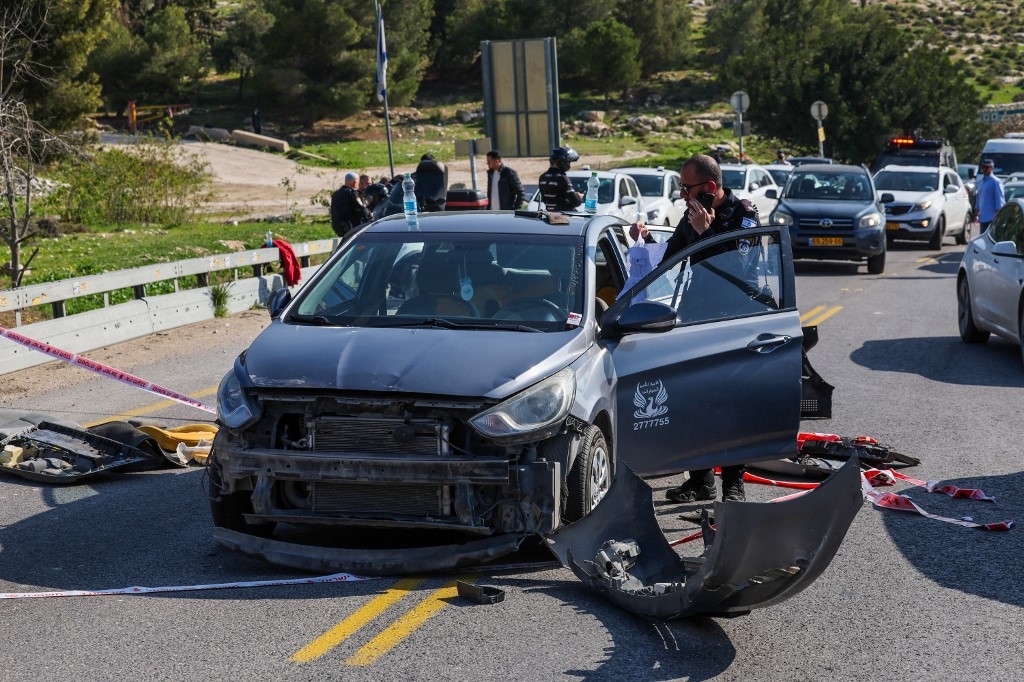
Israel's National Security Minister Itamar Ben-Gvir has called for restrictions on the freedom of movement of Palestinians after a shooting that killed an Israeli at a checkpoint near Jerusalem.
The far-right minister also promised to distribute more weapons to Israeli citizens, saying it had already prevented Thursday's shooting from being deadlier.
"A very big disaster was avoided here thanks to the fact that all the police officers have weapons and the citizens have weapons," he said, arriving on the scene of the shooting, which also left 10 people wounded.
"There were those who criticised me for that, but I think that today everyone understands that weapons save lives."
Israeli police said three Palestinian gunmen opened fire at motorists near occupied East Jerusalem, close to the Maale Adumim settlement in the occupied West Bank.
New MEE newsletter: Jerusalem Dispatch
Sign up to get the latest insights and analysis on Israel-Palestine, alongside Turkey Unpacked and other MEE newsletters
Two gunmen were killed and a third was arrested, according to police.
"The right to life of the Jewish residents of Judea and Samaria outweighs the right to freedom of movement of the residents of the Palestinian Authority," said Ben Gvir, using the biblical name of the West Bank.
"I expect there to be more and more barriers here, there will be restrictions. We need to come to an understanding that our enemies are not looking for excuses. They only want to harm. I will fight for restrictions - it's good that the prime minister accepts my principled position."
There have been repeated outbursts of violence in East Jerusalem and the West Bank since the beginning of the war on the Gaza Strip on 7 October.
At least 400 Palestinians have been killed by Israeli forces or settlers in the West Bank, as Israel has stepped up its near-daily raids.
Israel's far-right finance minister demanded an increase in settlement construction at Maale Adumim and nearby areas in the West Bank in response to Thursday's shooting.
"I demand the prime minister approve the convening of the higher planning council and immediately approve plans for thousands of housing units in Maale Adumim and the entire region," Bezalel Smotrich wrote on social media.
"Our enemies know that any harm to us will lead to more construction and more development and more of our control across the entire country."
Tensions ahead of Ramadan
Officials have become increasingly concerned that restrictions on Palestinians during the month of Ramadan could lead to a spiralling of the already febrile situation in the West Bank.
Earlier this week, the Israeli newspaper Haaretz reported that proposals by Ben Gvir to restrict Palestinian access to Al-Aqsa Mosque were accepted by Prime Minister Benjamin Netanyahu.
The limitations will be based on criteria such as age and gender, the details of which are to be decided in the coming days.
Ben Gvir reportedly recommended that only Palestinian citizens of Israel above the age of 70 should be allowed into the mosque during Ramadan, which starts next month, while Israeli police recommended entry for those aged over 45.
He also proposed a complete ban on Palestinians from the West Bank worshipping at Al-Aqsa during the holy month, although no decision has yet been made on this.
In a letter published on Tuesday, a group of retired Israeli officials warned against placing restrictions during Ramadan, saying it could lead to "escalation and disturbances on a wide scale".
Addressed to the government and intelligence officials from a group of "retired commissioners and superintendents", the letter warned restricting Palestinian citizens of Israel from accessing the Jerusalem holy site would be highly dangerous.
"The exclusion of the Arab citizens of Israel from going up to pray on the Temple Mount could lead to escalation and disturbances on a wide scale," read the letter, obtained by Israel's Channel 12.
"The recommendations of the Minister of National Security are motivated by ideological and electoral considerations and not by operational considerations."
Middle East Eye delivers independent and unrivalled coverage and analysis of the Middle East, North Africa and beyond. To learn more about republishing this content and the associated fees, please fill out this form. More about MEE can be found here.


